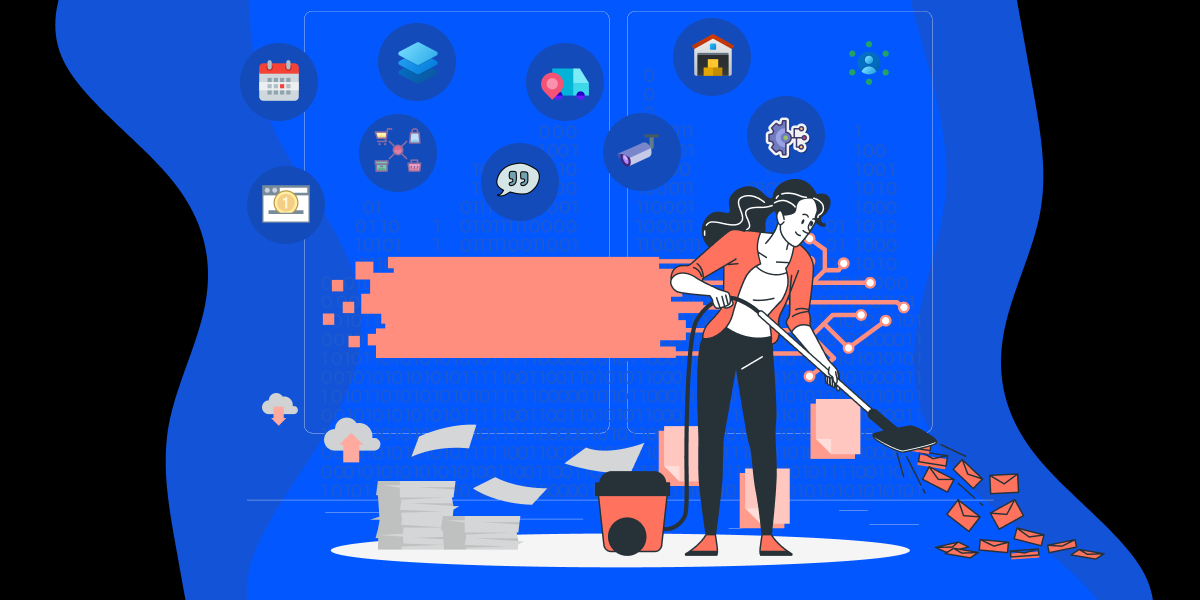Why Tech-Forward Businesses Have a CRM Mobile App
Mobile apps are transforming the way we live and work. Here's how a CRM mobile app can take your business to the next level.



When most people picture starting a small business, there's a movie reel that plays in their heads.
It goes something like this: A genius founder dreams up a brilliant idea. A hardworking team rallies together. Happy customers come pouring in. Before long, the business is turning a profit and improving the entire community.
Of course, running a business in real life is much harder. Instead of movie magic, businesses run on smart teams and powerful technology.
Today, traditional software risks falling a half-step behind the times. Mobility is an absolute must-have for modern businesses. In this article, we'll take a closer look at how a CRM mobile app can fuel long-term growth.
Let's dig in!
CRM Mobile Apps Respond to the Changing Workforce
If you want to summon a taxi, order a pizza or hire a handyman, what would you do? If you're like most people, you'd rely on a smartphone-based app. Startups like Uber, Postmates and Task Rabbit have thoroughly disrupted older business models.
The result? The way we live and work is changing, fast. Customers and employees alike now expect speed, convenience and choice. Above all, they need tools that can help them manage their busy lives.
A CRM mobile app delivers precisely this type of daily support. It puts the full capabilities of your CRM software in a convenient app. Checking customer accounts is as simple as refreshing your email while you're on the go.
CRM apps are especially helpful for teams that:
- Include remote employees
- Frequently travel
- Collaborate between multiple locations
Your CRM mobile app will sync across all your existing systems, ensuring everyone can access the latest customer data.
When your entire team draws from the same knowledge hub, staying on the same page is as easy as point and click.
CRM Mobile Apps Support the Trend Toward Mobility
Look around your office. Chances are, your employees are glued to their smartphones. It's easy to understand why: Push notifications ping with breaking news, text messages and incoming emails. Reminders buzz to keep everyone's lives on track.
Some business owners worry that smartphones sap productivity. But it's important to consider the opposite scenario: that mobile devices might actually drive efficiency in some cases.
Sure, notifications can be distracting. But smartphones are also equipped with powerful tools. Today, apps can help you manage every aspect of your life, from your to-do list to your personal finances or even your mental health.
A CRM mobile app complements the reality of this mobile-first culture. For example, GoSite's mobile app syncs an entire toolbox of digital marketing functions. Your team can monitor online reviews, message customers and view insights, right from their mobile devices.
Companies that refuse to embrace mobility might unintentionally sacrifice productivity along the way.

CRM Mobile Apps Support Better Customer Service Outcomes
By now, we've established that CRM mobile apps give teams more options for getting work done. But what's the end goal of all that efficiency? For most companies, it ties back to delivering great customer service.
To illustrate how this works, let's consider an example. Imagine a customer runs into an issue with his new toaster. Right away, there's a big problem: the coils don't get hot enough. It could be a safety feature malfunction, a faulty product or a user error with the settings. Either way, the customer needs help figuring it out. So, he submits a help ticket through the company's website, receives an automated email and waits for help.
Behind the scenes, a dozen factors could impact the company's response time. An unexpected absence could derail the entire operation, leaving employees scrambling. Colleagues might miscommunicate about who is handling the ticket. Worst of all, managers might have little insight into average response times.
Now, let's compare that response to a company that uses a CRM mobile app. When the support ticket rolls in, a handful of customer service employees get a push notification right away. They can instantly claim the ticket, or see if another teammate has done so. Before responding, teammates can even check the customer's purchase history and recent communications. Within moments, the team can deliver quick, personalized service, while staying in sync.
Which would you rather choose? For most businesses, the answer is clear: CRM mobile apps simplify the workflow and drive real results.
Your customers don't need to know (or care) about the digital intricacies of your business. But if you deliver great service, in person and online, they'll pay attention—and stick around.
CRM Mobile Apps Embrace an Agile Workflow
Up to this point, we've focused on the customer service aspects of CRM mobile apps. But in practice, a wide range of departments benefit from CRM software.
Customer relationships span not only customer service, but also sales and marketing. Even your HR department can find value in software that helps employees track their workload.
This lines up with the way customers experience your company. Every day, customer interactions play out across a multitude of channels. Let's say customer signs up for your newsletter, makes a purchase and posts a complaint on social media. These actions engage your marketing, sales and customer service teams.
A CRM mobile app embraces this complexity and supports an agile approach. Your CRM software can integrate data from a variety of sources into one complete portrait of your customers, all in real time. With the help of a CRM mobile app, you'll be able to access a full spectrum of insights, any time.
Want to learn more about how seamless CRM software can be? Download our free eGuide to get started!

%20(1)%20(1).png?width=340&name=Group%2012%20(2)%20(1)%20(1).png)



